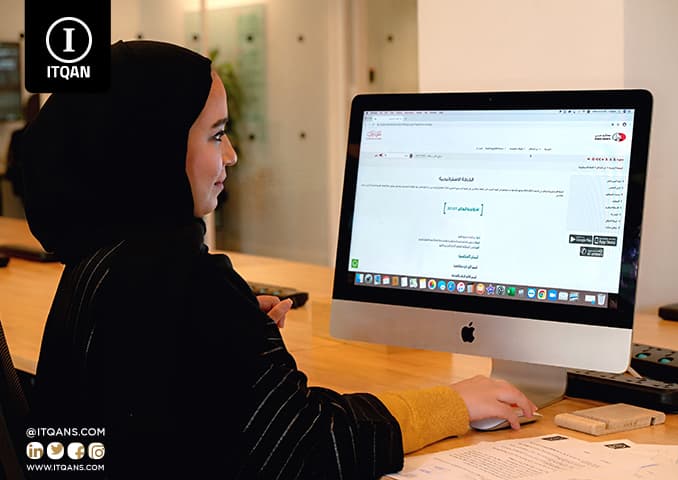Learn about the costs of establishing a company in Dubai, because establishing a company in Dubai is an important strategic step for many entrepreneurs and investors who are looking to benefit from the great economic opportunities provided by the emirate. Dubai is one of the most prominent business destinations in the world thanks to its advanced infrastructure, favorable business environment, and investment-attractive legislation. However, it is essential to understand the costs associated with this step for successful financial planning. Basic costs typically include licensing fees, set-up costs, and initial operating costs, as well as the cost of rent and human resources. In this article, we will detail the various aspects of the costs of setting up a company in Dubai , highlighting the factors that affect these costs and how to deal with them effectively.

جدول المحتوى
ToggleCosts of setting up a company in Dubai
The costs of setting up a company in Dubai are affected by a number of basic factors that must be taken into account to estimate the costs accurately. Among these factors:
- Company type : Costs vary depending on the type of company you wish to establish, whether it is a limited liability company (LLC), a public joint stock company, or a company in a free zone. Each type has its own requirements and costs.
- Company location : Determining the company’s location plays a major role in determining costs. Companies established in free zones often have lower costs compared to those established in non-free zones. The cost of rent in central areas is usually higher.
- Licensing and Fees : Basic fees include the cost of obtaining commercial and industrial licenses, which vary based on the type and size of the business. Fees can also include registration and visa issuance fees.
- Office rental : Office rental costs depend on the location, size of the space, and level of equipment. In free zones, there can be an option to rent flexible office space at competitive prices.
- Recruitment : Recruitment costs include salaries, bonuses, and social insurance for employees. These costs depend on the number of employees and their requirements.
- Equipment and infrastructure : includes the costs of purchasing or renting equipment, furniture, and computers, in addition to information and communications technology costs.
- Insurance : Various insurances must be provided, including property insurance, accident insurance, and employee insurance, which are additional costs that must be taken into account.
- Legal and accounting services : Includes the costs of obtaining legal and accounting services to assist in preparing legal documents, financial reports, and meeting regulatory requirements.
- Marketing and Promotion : Includes the costs of creating a visual identity, advertising campaigns, and promotional strategies to attract customers.
All of these factors play a decisive role in determining the total cost of establishing a company in Dubai, and it is important to conduct a comprehensive feasibility study to determine the appropriate budget and estimate costs accurately.
Types of companies in Dubai
Here is a table showing the different types of companies that can be established in Dubai, along with their basic features and requirements:
| Company type | Features | Incorporation requirements |
|---|---|---|
| Limited Liability Company (LLC) | – Limited liability for shareholders – Partnership with a local investor | – Local partner – Specific capital – Commercial registration |
| Public joint stock company | – Possibility of raising capital from the public – tradable shares | – Shares owned by public investors – Periodic financial reports |
| Sole proprietorship | – Completely individual ownership – Ease of management | – Single owner – Business registration – No local partner required |
| A company in a free zone | – Full ownership by foreigners – Tax exemptions | – Choosing a free zone – Special requirements for the free zone |
| Professional company | – Specialize in specific services such as consulting or law | – Registration as a specialized profession – requirements specific to the profession |
| Branch of a foreign company | – Continuing operations of the parent company – no need for a local partner | – Branch registration – approval from the parent company |
| Technology/fintech company | – Special support for innovation and technology – Tax incentives | – Meeting special technology standards – Special licenses |
| Trading company | – Comprehensive commercial activity – wide options for commercial activities | – Commercial registration – approval of commercial activity |
Each of these types of companies has special requirements and registration procedures that must be followed, providing multiple options to meet the different needs of investors and business people in Dubai.
Steps to establish a company in Dubai
Setting up a company in Dubai requires following a set of basic steps to ensure smooth incorporation and compliance with local laws. Here are the steps to establish a company in Dubai:
- Determine the type of company : First, determine the type of company you want to create, whether it is a limited liability company (LLC), a public joint stock company, a sole proprietorship, or a company in a free zone. Each type has its own requirements and details.
- Choose a business : Choose the business activity your company will undertake. The activity must be carefully identified as it affects the required licenses and permits.
- Determine a company name : Choose a company name that is consistent with local laws and reflects the business. Ensure that the name is not already used and complies with Dubai company naming rules.
- Determine the company’s location : Determine the location of the company’s office, whether it is in a free zone or in a non-free zone. Rental and equipment costs vary by location.
- Preparing legal documents : Prepare the necessary legal documents, such as the articles of association, memorandum of understanding, and lease contracts. An attorney or legal advisor may be used to ensure compliance with all legal requirements.
- Submit an application for a license : Submit an application for a commercial license from the Department of Economic Development in Dubai or the relevant authority in the free zone. Required documents usually include certified copies of articles of incorporation, identity cards, and other relevant certificates.
- Open a bank account : Open a bank account in the company’s name at a local bank. You will need to submit legal documents for the company as well as the required capital deposit.
- Registration with the General Tax Authority : Register the company with the General Tax Authority if the business activity requires tax registration.
- Visa Insurance : Apply for work and residence visas for employees and shareholders. This includes submitting the required documents and medical examinations.
- Secure other licenses and approvals : Make sure you obtain any additional licenses or approvals specific to the business you will be doing, such as health or safety licenses.
- Equipping the office : Equip the office with basic requirements, such as furniture and equipment, and provide necessary services such as the Internet and telephone.
- Company Marketing : Prepare a marketing plan to introduce customers to the products or services provided by the company.
By following these steps, you can establish your company in Dubai effectively and in compliance with all legal and procedural requirements.
Advantages of establishing a company in Dubai
Establishing a company in Dubai offers many advantages that make it an attractive option for entrepreneurs and investors. Among the notable advantages:
- Supportive business environment : Dubai provides a favorable business environment with great facilities for startups and investors, including speeding up procedures and easing bureaucracy.
- Tax incentives : Dubai offers tax benefits such as not imposing a corporate tax in many free zones, and not imposing a tax on personal income, which reduces overall tax costs.
- Advanced infrastructure : Dubai has an advanced infrastructure that includes ports, airports, and modern commercial facilities, which contributes to facilitating transportation and trade operations.
- Strategic location : Dubai is located in a strategic location linking East and West, making it a major connection point for international trade and investment.
- Diverse market and rapid growth : Dubai offers a diversified market and rapid growth in various sectors, providing great opportunities for new businesses.
- Freedom of Foreign Ownership : In free zones, foreign investors can own companies outright without the need for a local partner.
- Ease of doing business : Dubai provides many facilities, such as the ease of opening bank accounts, fast company registration procedures, and the availability of specialized consulting and legal services.
- Multiple business zones : There are many free zones in Dubai, each focusing on specific types of business activities and providing specialized incentives and facilities.
- Security and Security : Dubai is among the safest cities in the world, providing a stable and comfortable environment for business.
- Cultural Diversity : Dubai is characterized by great cultural diversity, which enhances the global work environment and makes it easy to attract clients and employees from different backgrounds.
These advantages make Dubai an attractive destination for businesses and investors, contributing to the success and expansion of their projects.

Conditions for establishing a company in Dubai
Establishing a company in Dubai requires fulfilling a number of basic conditions and requirements to ensure compliance with local laws. Below are the most prominent conditions:
- Choosing the type of company : Determine the type of company (such as a limited liability company, a joint stock company, a sole proprietorship, or a company in a free zone) in accordance with business objectives and legal requirements.
- Determine the business activity : The business activity that the company will undertake must be precisely determined, as this affects the type of license required and legal requirements.
- Choosing a company name : You must choose an appropriate name that complies with local regulations, and the name must not be previously used and be in line with company naming laws in Dubai.
- Securing the company’s location : The location of the company’s office must be determined, whether it is in a free zone or a non-free zone, and the availability of a valid lease contract for the office must be ensured.
- Preparing legal documents : Basic legal documents such as the articles of incorporation and memorandum of understanding must be prepared, and may need to be notarized by a notary.
- Obtaining a commercial license : Submit an application to obtain a commercial license from the Department of Economic Development in Dubai or the relevant authority in the free zone. The application includes submitting the required documents such as articles of incorporation and copies of identity cards.
- Opening a bank account : A commercial bank account must be opened in the name of the company in a local bank. This requires submitting the company’s legal documents.
- Registration with the General Tax Authority : If the business activity requires tax registration, the company must be registered with the General Tax Authority.
- Visa insurance : Applying for work and residence visas for employees and shareholders, which requires submitting the required documents and medical examinations.
- Obtaining special approvals : In some commercial activities, there may be a need to obtain additional approvals or licenses from competent authorities, such as health or security licenses.
- Providing capital : Some types of companies, such as limited liability companies, may require that specified capital be deposited into the company’s bank account.
- Compliance with Laws and Regulations : Adhere to all local laws and regulations related to employment, health, safety, and environment.
Make sure you adhere to all these conditions to ensure a legal and effective company setup in Dubai.
In conclusion, Dubai is considered one of the most prominent global destinations for establishing companies thanks to its advanced business environment, strategic location, and attractive investment incentives. By understanding and applying the basic steps and legal requirements related to setting up a company in Dubai, investors and entrepreneurs can take advantage of the vast opportunities the emirate offers for success and growth. Whether you are considering establishing a company in a free zone or in a non-free zone, a careful assessment of the requirements and costs, in addition to benefiting from specialized legal and accounting consulting services, will contribute greatly to facilitating the establishment process and ensuring that your company complies with all laws and regulations. By following these procedures and considerations, you will be able to lay a strong foundation for your business venture in Dubai, enhancing your chances of success and prosperity in this dynamic and growing market.
Frequently asked questions about setting up a company in Dubai
Can foreigners own a company entirely in Dubai?
Yes, in free zones, foreigners can fully own companies without the need for a local partner. In non-free zones, a local partner may be required.
What are the basic costs of setting up a company in Dubai?
Costs include licensing fees, rent, office equipment costs, insurance, salaries, and legal and accounting costs.
Are there different types of business licenses in Dubai?
Yes, there are different types of commercial licenses based on the type of activity, such as commercial, industrial, and service licenses. Each license requires different documents and requirements.
What are the free zones in Dubai?
Free zones are special business zones that offer benefits such as full foreign ownership and tax exemptions. Includes free zones such as the Dubai International Financial Centre, Dubai Internet Zone, and Dubai Investment Zone.


















